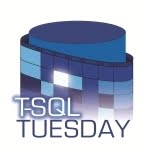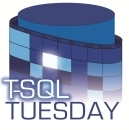I have been a regular attendee at PASS Summit for 15 years now. This year (2018) marked my 15th year in a row. It is the 20th year for the summit. In many ways this summit was a significant, special one for me – in my career, personal growth and relationships. It was also a landmark year for the summit – in terms of direction and community. This year carried many gifts with it – summarized as below –
🎁 I published my first book this year. My book is a series of interviews with people in the data community, and is part of the ‘At Work’ series by Apress – that have people in various professions interviewed on their career path. The publishing of my book coincided with books published by the illustrious likes of Bob Ward and Grant Fritchey. The book was well received and I got to autograph several copies of it at Apress booth. SentryOne also kindly purchased 100 copies as giveaways at their booth. I liked the book-writing experience – I enjoy writing and it is my chosen way of expressing myself. I was able to get the affirmation I needed in this regard.
🎁PASS has published stories of people whose lives have changed as a result of attending summit. My own story has its mention here. I was very proud to have been highlighted among several community members.
🎁I joined the bloggers table with several people who are rockstars at what they do. While live blogging was a difficult challenge and one that I need to work harder at, just sitting at the table with so many people was a total honor. I was very proud to have made it here.
🎁 My good friend Jen Mccown published the first every SQL YearBook – this is a compilation of stories from many in the community. It is worth a read.
My sincere thanks to the many people who were part of my book, Jonathan Gennick of Apress, Rachel Siragusa of SentryOne, Jen McCown, PASS HQ and BoD for making this year and this summit a gift laden one for me. Happy Thanksgiving.






